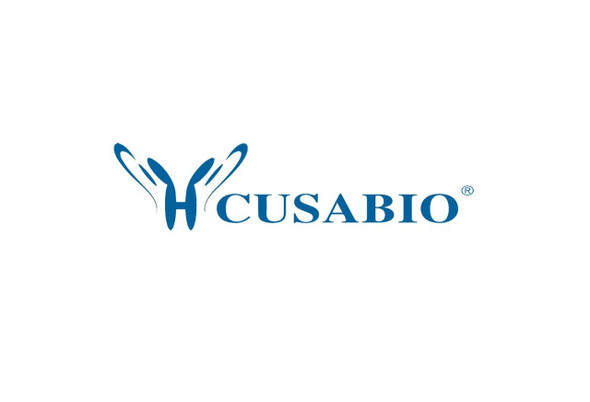Cusabio Human Recombinants
Recombinant Human Tumor necrosis factor ligand superfamily member 12 (TNFSF12), partial | CSB-EP023987HU
- SKU:
- CSB-EP023987HU
- Availability:
- 13 - 23 Working Days
Description
Recombinant Human Tumor necrosis factor ligand superfamily member 12 (TNFSF12), partial | CSB-EP023987HU | Cusabio
Alternative Name(s): APO3 ligandTNF-related weak inducer of apoptosis ;TWEAK
Gene Names: TNFSF12
Research Areas: Cancer
Organism: Homo sapiens (Human)
AA Sequence: SLGSRASLSAQEPAQEELVAEEDQDPSELNPQTEESQDPAPFLNRLVRPRRSAPKGRKTRARRAIAAHYEVHPRPGQDGAQAGVDGTVSGWEEARINSSSPLRYNRQIGEFIVTRAGLYYLYCQVHFDEGKAVYLKLDLLVDGVLALRCLEEFSATAASSLGPQLRLCQVSGLLALRPGSSLRIRTLPWAHLKAAPFLTYFGLFQVH
Source: E.coli
Tag Info: N-terminal 6xHis-SUMO-tagged
Expression Region: 43-249aa
Sequence Info: Extracellular Domain
MW: 38.9 kDa
Purity: Greater than 90% as determined by SDS-PAGE.
Relevance: Binds to FN14 and possibly also to TNRFSF12/APO3. Weak inducer of apoptosis in some cell types. Mediates NF-kappa-B activation. Promotes angiogenesis and the proliferation of endothelial cells. Also involved in induction of inflammatory cytokines. Promotes IL8 secretion.
Reference: Crystal structure of human TWEAK in complex with the Fab fragment of a neutralizing antibody reveals insights into receptor binding.Lammens A., Baehner M., Kohnert U., Niewoehner J., von Proff L., Schraeml M., Lammens K., Hopfner K.P.PLoS ONE 8:E62697-E62697(2013)
Storage: The shelf life is related to many factors, storage state, buffer ingredients, storage temperature and the stability of the protein itself. Generally, the shelf life of liquid form is 6 months at -20?/-80?. The shelf life of lyophilized form is 12 months at -20?/-80?.
Notes: Repeated freezing and thawing is not recommended. Store working aliquots at 4? for up to one week.
Function: Binds to FN14 and possibly also to TNRFSF12/APO3. Weak inducer of apoptosis in some cell types. Mediates NF-kappa-B activation. Promotes angiogenesis and the proliferation of endothelial cells. Also involved in induction of inflammatory cytokines. Promotes IL8 secretion.
Involvement in disease:
Subcellular Location: Cell membrane, Single-pass type II membrane protein, SUBCELLULAR LOCATION: Tumor necrosis factor ligand superfamily member 12, secreted form: Secreted, SUBCELLULAR LOCATION: Isoform TWE-PRIL: Cell membrane, Single-pass membrane protein
Protein Families: Tumor necrosis factor family
Tissue Specificity: Highly expressed in adult heart, pancreas, skeletal muscle, brain, colon, small intestine, lung, ovary, prostate, spleen, lymph node, appendix and peripheral blood lymphocytes. Low expression in kidney, testis, liver, placenta, thymus and bone marrow. Also detected in fetal kidney, liver, lung and brain.
Paythway:
Form: Liquid or Lyophilized powder
Buffer: If the delivery form is liquid, the default storage buffer is Tris/PBS-based buffer, 5%-50% glycerol. If the delivery form is lyophilized powder, the buffer before lyophilization is Tris/PBS-based buffer, 6% Trehalose, pH 8.0.
Reconstitution: We recommend that this vial be briefly centrifuged prior to opening to bring the contents to the bottom. Please reconstitute protein in deionized sterile water to a concentration of 0.1-1.0 mg/mL.We recommend to add 5-50% of glycerol (final concentration) and aliquot for long-term storage at -20?/-80?. Our default final concentration of glycerol is 50%. Customers could use it as reference.
Uniprot ID: O43508
HGNC Database Link: HGNC
UniGene Database Link: UniGene
KEGG Database Link: KEGG
STRING Database Link: N/A
OMIM Database Link: OMIM









